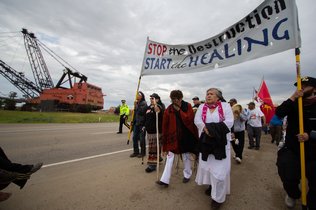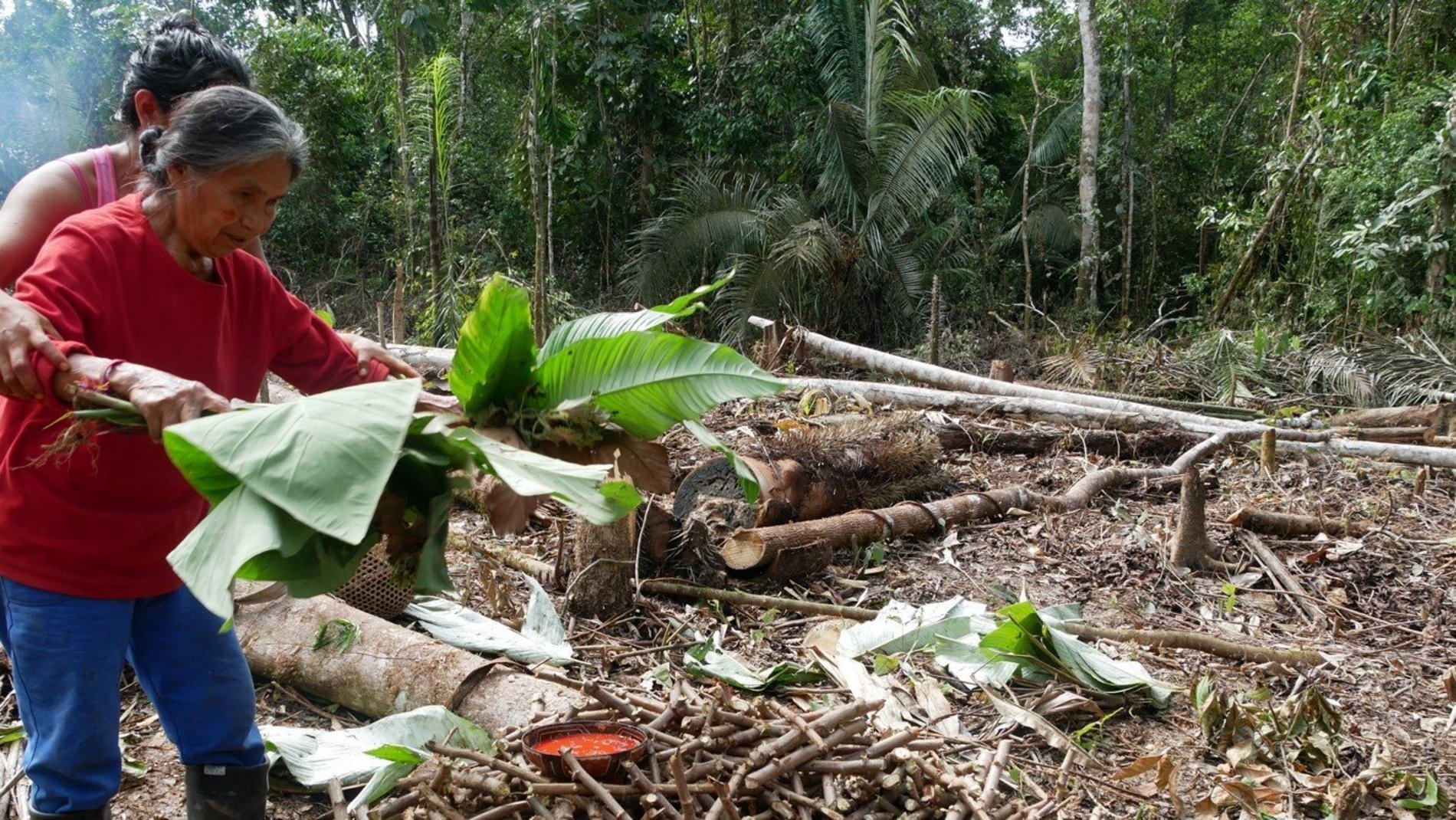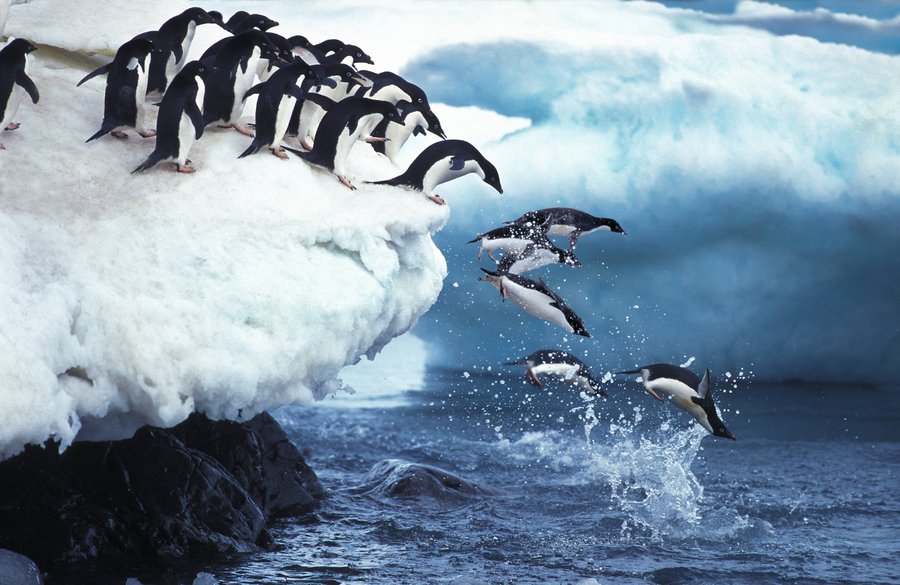An Urgent Shift: Wild Law in South Africa and beyond
by Lesai Seema, Wild Law Institute, South Africa

As humanity grapples with the far-reaching consequences of its actions, from rapid biodiversity loss to the challenges of water scarcity and the environmental ramifications of industrial practices, the need to reconsider our legal frameworks has never been more pressing.
In this context, the fundamental principles and ethos of ‘Wild Law’ and the Wild Law Institute are questioning or rethinking the conventional governance framework,
steering and emphasising the importance of recognising the inherent nature of the entity which they are seeking to govern to create more effective laws for all living entities.
The Wild Law Institute's initiatives showcase the potential and practical implementation of this rethinking process and shed light on the requirements to fully embody the concept of 'Wild Law’. As a participant in the Antarctica Rights working group, our collective goal is to apply the Rights of Nature to Antarctica, creating a framework through which Antarctica's voice can influence human decision-making. The group is formulating an Antarctica Declaration that acknowledges Antarctica's right to self-determination and representation in decision-making processes, coupled with establishing a global alliance to safeguard Antarctica's right to maintain its frigid conditions.
As part of the ongoing initiatives at the Wild Law Institute, we address the urgent need to reorient our societies towards Harmonious Coexistence Within Nature.
Despite attempts to curb the destruction and degradation of Earth, our persistent prioritisation of economic growth and the continued 'use' of nature over the well-being of the entire Earth Community necessitates a fundamental shift.
Through our sustained efforts, we have developed a vision for Harmonious Coexistence Within Nature tailored to South Africa's governance systems. This vision, crafted in collaboration with activists, conservationists, and indigenous leaders, outlines a pathway for societies to embrace a more sustainable and interconnected relationship with nature. We have also applied this approach to provide insightful comments on the Climate Change Bill currently under development in South Africa.
Furthermore, the Wild Law Institute actively participates in the Global Alliance for the Rights of Nature (GARN), a worldwide movement dedicated to advancing and defending the rights of nature. Our Director, Cormac Cullinan, has been integral to GARN since its inception and currently serves on the Executive Committee. In addition to our global involvement, since February 2022, the Wild Law Institute has taken the lead in establishing the African Hub of GARN. This hub is committed to promoting the universal adoption and implementation of legal systems that recognise, respect, and enforce the Rights of Nature on the African continent. These initiatives showcase the institute's multifaceted contributions to fostering a more harmonious and sustainable relationship between humans and the natural world.
Engaging in these endeavours invariably leads one to the frontier of human understanding. Contributing to drafting the declaration reveals the inherent limitations of law when confronted with the intrinsic value of entities beyond human animals.
The legal system, functioning as a measurement tool, tends to concentrate on measurable and quantifiable aspects, often neglecting ecosystems' qualitative, interconnected, and holistic nature.
Rights of Nature and Earth Jurisprudence serve as a lingua franca; they don't offer conclusive solutions but exist to make room for other ideals and truths.

The concept of Rights of Nature challenges the assumptions underlying environmental legislation: Current law ostensibly grants legal protections to the environment and seeks to enforce them on its behalf, but in reality, it protects human interests in the environment and imposes limits and restraints on human behaviour. The environment is protected only to the extent that harm to the environment can negatively affect human rights.
Section 24 of the Constitution of the Republic of South Africa exemplifies this anthropocentric approach. It provides that:
“Everyone has the right—
to an environment that is not harmful to their health or well-being; and (b) to have the environment protected, for the benefit of present and future generations, through reasonable legislative and other measures that (i) prevent pollution and ecological degradation; (ii) promote conservation; and (iii) secure ecologically sustainable development and use of natural resources while promoting justifiable economic and social development.”
Section 24 of the Constitution, as well as the various Acts that regulate, among other things, air quality, biodiversity, coastal management, protected areas and forests, have been vital in slowing the degradation of Nature. However, they only recognise and provide for the protection of Nature as property for the benefit of humans.
The current legal approaches to interpreting and protecting "environmental rights" need to be reevaluated:
If the word “Everyone” at the beginning of section 24 were interpreted as including other forms of life, such as non-human animals, it would have a transformative effect on how humans relate to other-than-human beings.
Professor of Fundamental Rights and Constitutional Law at the University of Johannesburg, David Bilchitz, presents an insightful approach here: He posits that a constitution inherently operates at a high level of abstraction, encompassing various aspects of life and society, and cannot address every detail explicitly.
The purpose of a constitution is to adapt to evolving circumstances, leading to interpretations that shift across generations.
The absence of express reference to particular groups does not necessarily imply a lack of constitutional protection for those groups. Bilchitz emphasises this point by demonstrating that the South African Constitutional Court has occasionally recognised and upheld protections not explicitly included by the legislature.
This opens up the exciting possibility of incorporating the fundamental principles of Rights of Nature into the South African legal framework by recognising beings other than humans and juristic persons, as legal subjects with rights. The focus would then shift from discussing the struggles of Rights of Nature in South Africa to exploring the implications of Rights of Nature on existing legislation.
By applying Bilchitz's interpretative approach, it is possible that if the principles of Rights of Nature were incorporated into Section 24(a) of the Constitution, Rights of Nature would become an unqualified right that is immediately realisable. In the ongoing case Trustees for the time being of Groundwork Trust and Another v Minister of Environmental Affairs and Others, Collis J. remarks that the interpretation of Section 24(a) "is reinforced by the principle that the 'negative' component of all socio-economic rights – the right to be free from interferences in the enjoyment of that right – is always unqualified and is not subject to any requirements of reasonableness."
Rights of Nature intends to fundamentally change our understanding and interaction with Nature at all levels, emphasising that we are part of a community of life rather than mere managers of "natural resources."
This concept can serve as a potent tool to increase ecological awareness, safeguard the foundations of life, and promote shared goals.
Even with a well-developed system of environmental laws in South Africa, Nature continues to be over-exploited, and environmental crises like climate change and the rapid decline of populations continue to accelerate. It would be highly beneficial if our legal system would recognise our responsibilities to Nature as distinct from our duties to fellow humans. Every living entity, including human animals, non-human animals and the environment, deserves equal moral consideration. Each generation of living entities should have a recognised right to inherit the same natural environment and welfare enjoyed by previous generations.
It is time for our legal system to recognise that humans are not the only subjects on Earth and that we cannot protect human rights without protecting the rights of all beings. As we navigate the complexities of environmental protection in the 21st century, the call embraces a holistic perspective that transcends anthropocentrism and fosters a sense of shared responsibility for all life.
In this pivotal moment, Rights of Nature provides real hope for a future wherein humans, nonhuman animals and the environment are preserved for generations to come; this involvement can be a catalyst for change.
Links & Literature
- Wild Law Institute: https://www.wildlaw.net/
- Antarctic Rights: https://antarcticrights.org/
- Bilchitz, David (2017): “Exploring the Relationship between the Environmental Right in the South African Constitution and Protection for the Interests of Animals.” South African Law Journal 134 (4).
- Cormac Cullinan (2002). Wild Law: Governing People for Earth. Cape Town. Siber Ink.
- Kotzé, Louis J. (2014). "Rethinking Global Environmental Law and Governance in the Anthropocene." Journal of Energy & Natural Resources Law 32 (2): 128. Online.



